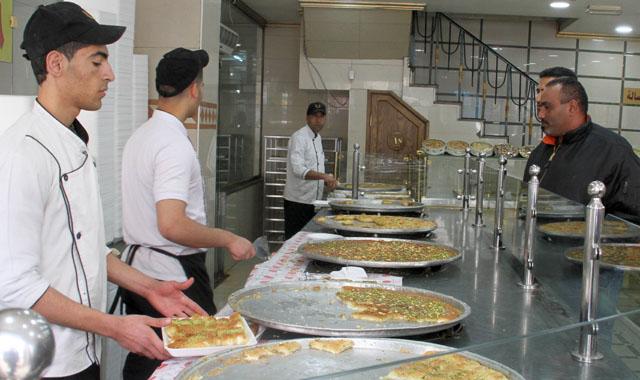You are here
Restaurant workers face increased labour violations during Ramadan, says union leader
By Mays Ibrahim Mustafa - Apr 16,2023 - Last updated at Apr 16,2023

Representative image (Photo courtesy of unsplasy/Hans Moerman)
AMMAN — Workers in the restaurants sector are experiencing an increase in labour violations related to overtime work during Ramadan, according to the general union for freelancers and service workers.
Speaking with The Jordan Times, president of the union, Khaled Abu Marjoub, noted that the working hours of restaurants usually increase during the holy month of Ramadan due to the change in people’s eating habits.
Although local restaurants don’t serve food or receive customers during the day, they start preparing food for iftar [the fast-breaking meal at sunset] in the afternoon and remain open until after the pre-dawn meal of suhoor, Abu Marjoub said.
“Instead of dividing the work into shifts, some employers force their staff to work from 2pm until 4am without overtime pay. That’s 14 hours a day for an entire month,” Abu Marjoub said, noting that wages in the sector are generally low, ranging between JD260 and JD300 per month at most restaurants.
“The sustainability of work during Ramadan shouldn’t be at the cost of workers’ rights,” he added.
The union brought the issue to the attention of the Ministry of Labour to advocate for more inspection campaigns, he continued.
However, workers who experience any form of labour violation must individually file a complaint through the ministry’s “Himayah” [protection] platform, said Abu Marjoub.
He further noted that the lack of awareness of labour laws among a large number of workers, the majority of whom are foreign labourers, makes them more vulnerable to violations.
The Jordanian Labour Code No. 8 of 1996 stipulates that the standard working period is 48 hours distributed over no more than six days.
It also states that workers may be employed beyond these hours with their consent, provided that they are paid overtime equal to 125 per cent of their regular remuneration.
If overtime work is done on a weekly rest day or on an official or religious holiday, workers’ overtime rate increases to a minimum of 150 per cent of their regular remuneration, according to the law.
Other common violations of labour laws in the sector include failure to pay the minimum wage of JD260 per month, or noncompliance with occupational health and safety requirements in the workplace, said Abu Marjoub.
Workers in the restaurant sector also “rarely” benefit from social security subscriptions or a health insurance plan, he added.
President of the Jordan Association for Restaurants and Sweet shops Owners, Omar Awwad, said that the association did not receive complaints regarding any violations of labour laws.
“As an employer and a sector representative, I stand against such violations if there are any,” he told The Jordan Times, noting that employees who work overtime are “definitely” entitled to receive compensation as per the labour law.
However, investigating this issue falls under the jurisdiction of the Ministry of Labour, he noted.
There are roughly 18,000 restaurants and sweet shops in the Kingdom, employing around 350,000 workers, according to Awwad.
Related Articles
AMMAN — Sweet shops and budget-friendly restaurants have witnessed numerous labour violations during the holy month of Ramadan, according to
AMMAN — The Beauty Salon Owners’ Association and the Self-employed and Service Workers’ Association have finalised an agreement to improve t
The Social Security Corporation (SSC) will soon launch the second phase of its awareness campaign to expand insurance coverage for workers in restaurants and sweets shops, according to an official.
















